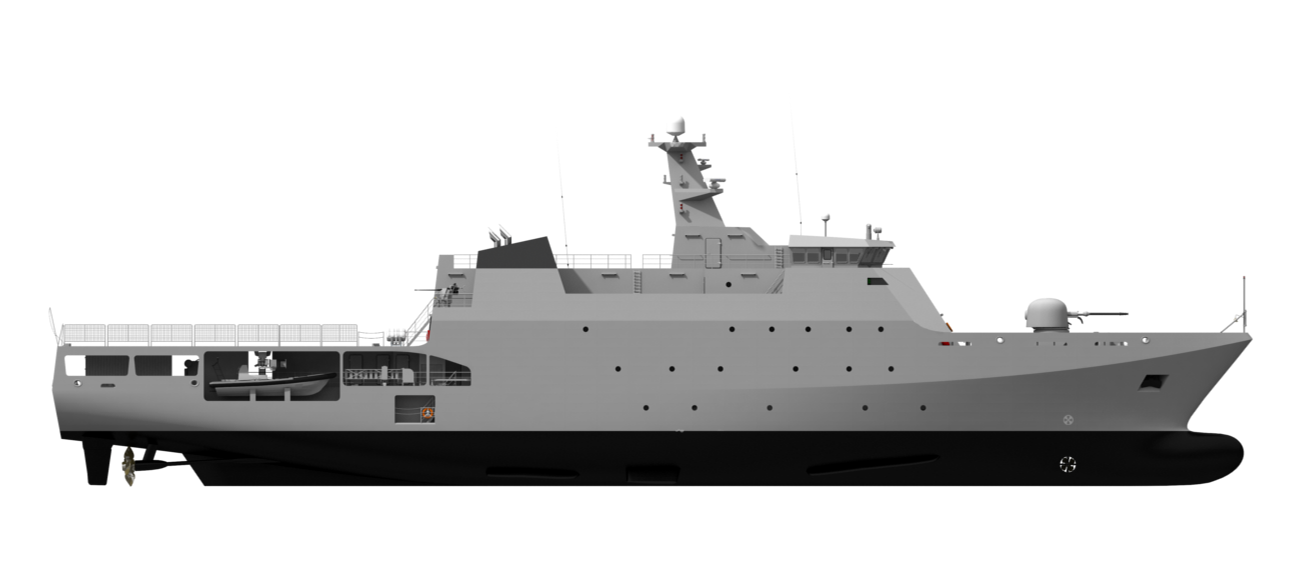
SHAH ALAM: MMEA OPV. As mentioned in the previous posts, the MMEA is getting three new build OPVs. The basic design of these vessels was outlined in the interview with the MMEA DG last April. As for the builder it will likely be the JV of two subsidiary companies of two public listed companies, TH Heavy Engineering and Destini Bhd as stated in the previous posting.
Destini will also be involved in the construction of the three 80-metre OPV program for APMM. It appears that TH Heavy was cognisant of the claims that it had no prior shipbuilding experience and therefore had entered a JV with Destini – the builder of the NGPC for the OPV program. Last July when confirming it was in talks with APMM for the OPV program, it stated that the status of talks was in a flux. TH Heavy and Destini signed an agreement for a JV for the OPV project on 27th October, 2016, according to its announcement to Bursa KL on the same date.
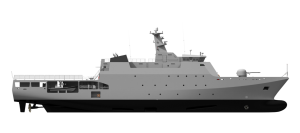
So what OPV will the JV built then? Previously I mentioned that a German designed OPV was the favourite for the project. It was correct until TH Heavy got the job to built the OPVs.
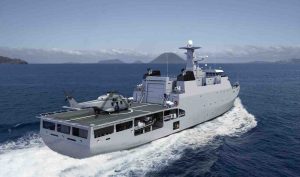
TH Heavy, I am told, has selected the Damen 1800 OPV for the MMEA program. It is the earlier 1800 OPV design and not the latest OPV 2 with the Sea Axe hull. It is likely that they will incorporate some of the features of the OPV 2 for the MMEA variant. As the JV company will be designated as the main contractor, Damen as the design authority and technical adviser, will serve as the principal sub-contractor for the programme.
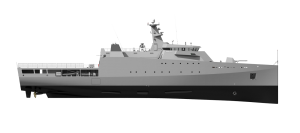
Personally, I like the Sea Axe Hull design it looks much more purposeful and modern. But I guess that MMEA prefer a proven hull/design instead.
OPV 1800
Description
EXCELLENT POWER / SPEED RATIOS
– Much less power installed than in typical corvettes.
– Hull design is more economical at patrol speed.FACILITIES FOR LARGE HELICOPTER
– Hangar, flight deck and service space for single helicopter up to 11-tonnes
– Lights and visual aids for day and night operations
– Avcat re-and de-fuelling system – HIFR optional.ECONOMIC PROPULSION PACKAGE
– Four diesel engines with two controllable pitch propellers. Running only two diesels at patrol speed reduces fuel consumption and extends range
– Alternative propulsion packages are available such as twin diesels or diesel-electric.Length (meter)
83
Speed max (kts)
22
Crew
46
Beam (m)
13.7
Propulsion
4×2350 kW, CPP
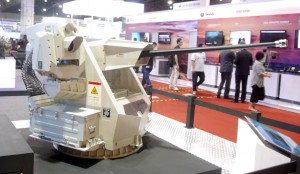
From the CGI, the Damen 1800 OPV is designed to be fitted with a 76mm gun. It is likely that the MMEA OPV will only carry a 30mm gun which will be cheaper than the bigger one. It could also carry another two 30mm guns aft based on the CGI but I am guessing that will be replaced by 12.7mm guns on the MMEA OPV.
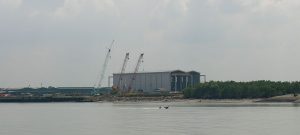
So how will it be build then? I have no idea as the contract has yet to be signed. But hopefully, we adopt the same method that Indonesia took when building the first of its two Sigma 10514 frigate. For the build, two modules were built and fully tested in Holland while another four were done in Indonesia while the integration and fitting out were completely done in country.
Of course, we could go full monty and go down the LCS route by assembling the whole ship locally with steel cut in Holland but I hope cooler heads will prevail. At least for the first OPV, of course.
— Malaysian Defence
If you like this post, buy me an espresso. Paypal Payment

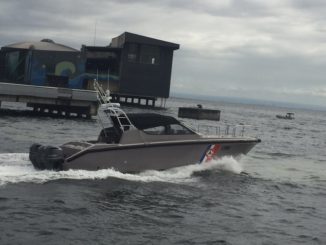
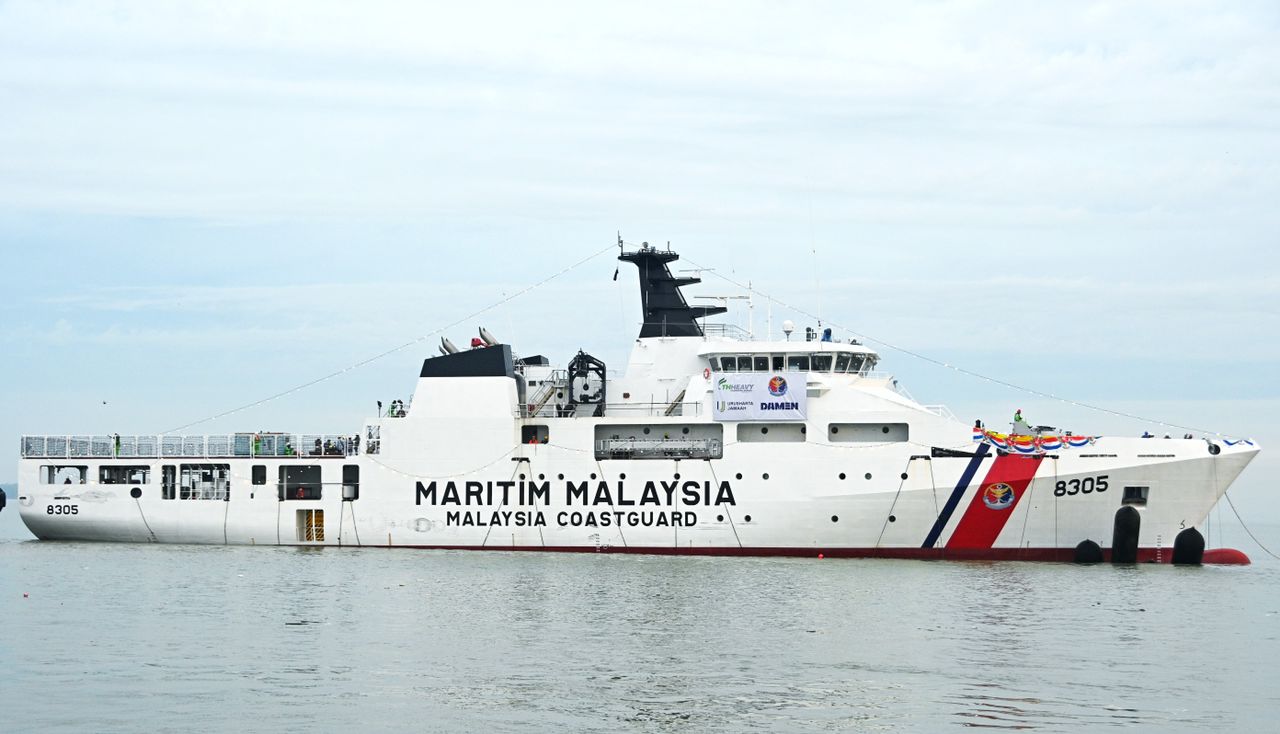
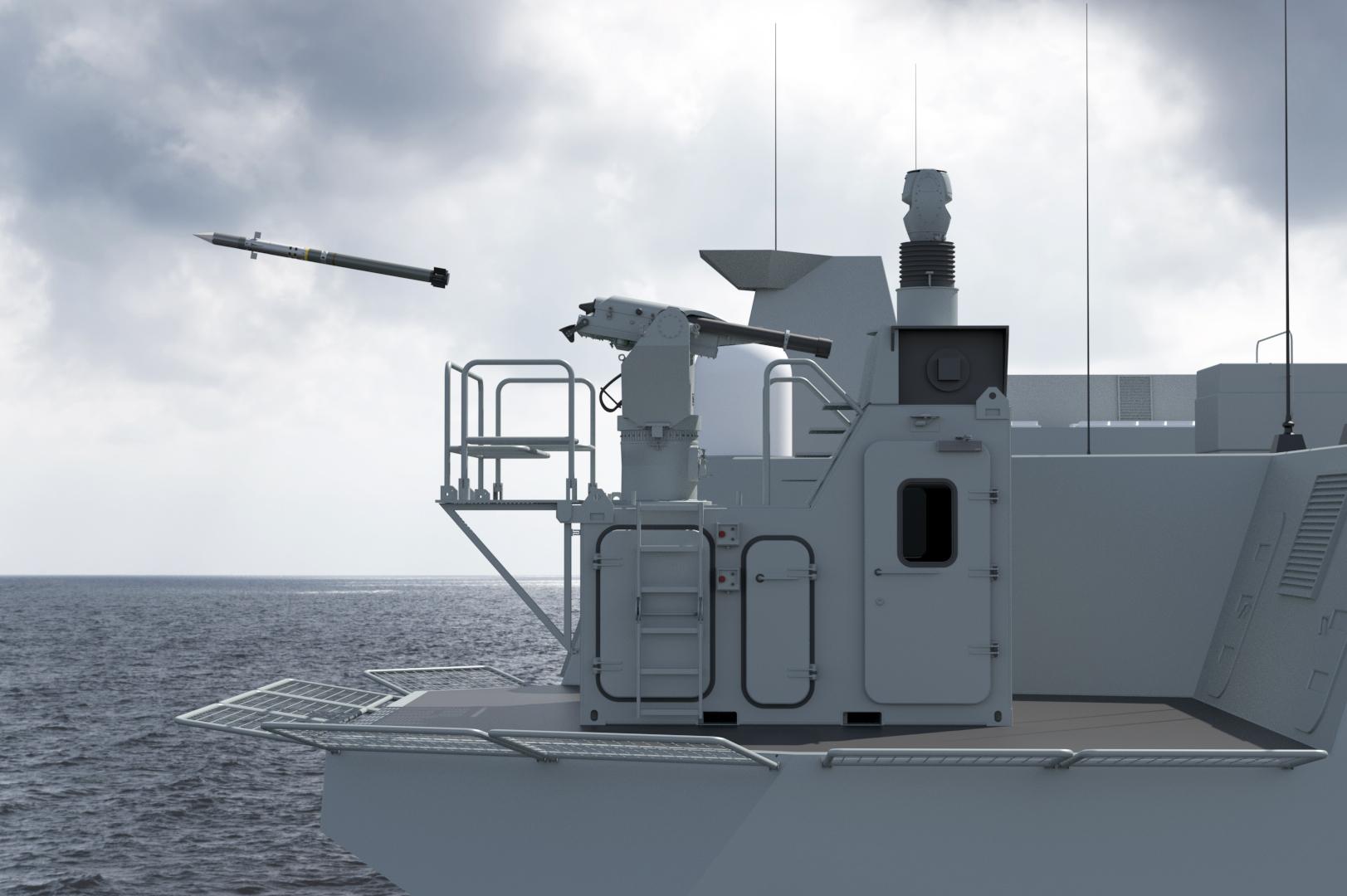
With the TH Heavy management in crisis (SPRM is investigating them), i prefer that this OPV contract is at least delayed if not cancelled outright. The APMM are getting some free OPV’s from japan, so this buy are actually surplus to the requirement.
BTW if not mistaken the damen OPV is also the basis for Australian Navy helicopter training vessel.
MMEA should decline the free OPV from Japan and ask for soft loan from them just like the Pinoy coast guard. I prefer a new and realible ship than a free ship that almost 30 years old. The Japanese would also let the ship build locally here.
Damen 1800 opv as far as I can check is not operated by anyone yet, are APMM the launch custumer?
And the way you writeup, I was under the impression that the design was selected by shipyard not end user. Are we going to see sub-systems preferred by end user being overruled by shipyard? (like the gowind CMS and radar selection story)
Reply
Damen uses basically the same hull for all its ships including civil ones. Yes it will be the shipyard that choose the system and as long they stay under the budget and its already in service, MMEA will take it.
Why can’ t we use the meko 100 hull for the OPV?
Reply
No idea, most likely BNS was unable to match the price to the budget.
A bit confused here….
The OPV project is a JV between THHE and Destini. So, where is damen?
Reply
Damen supply the design, and the design authority. Technically it will be a sub-contractor or supplier to the JV company same like DCNS for the LCS project.
Getting soft loan from japan will inevitably include purchasing japan-made ship, something that will irk china.
we already had this issue before
Irsa,
Building a MEKO costs a lot. Simply, just because you have the blueprints doesn’t mean you can endlessly build it. Cash still needs to flow in and building a MEKO for them is quite out of their budget.
Meh – ”I prefer a new and realible ship than a free ship that almost 30 years old.”
Yes a 30 year old ship will be maintenance intensive; the bigger it is the more work is required and due to age there is a likelihood of things breaking down. With a 30 year old ship efforts will also be made to not spend extra hours at sea as well as avoiding her operating in rough sea conditions [to prolong the life of the hull and vital systems].
Whilst the new OPVs will certainly be a major step over the ex Japanese ships [in terms of maintenance, performance, etc] the question really is which should be a priority at this present time : new OPVs or additional NGPCs? Also, will the MMEA’s operational budget get a slight increase to operate and maintain these OPVs?
OPV UAV, logically Fulmar but it can be different too.
Why can’t the Japanese ships be based in ESSCOM?That will be a good stop gap measure until more base ships can be obtained.
Reply
I think the water around ESSCOM is too shallow for these OPVs
Tom Tom,
Good question but assuming the ex Jap ships are based in ESSCOM what value will they bring? In the first place there a shortage of ships in ESSCOM? Is there a need for ocean going OPVs [or ones designed for deep water ops] to be deployed in the littoral environment that ESSCOM is? Will it be more practical to deploy smaller ships in ESSCOM?
A point to consider is that previous aid provided to the MMEA by Japan [to be precise the Nippon Foundation] in the form of a training ship, NGVs, RDF gear and training was intended to enable the MMEA to better police the Melaka Straits. It’s in Japan’s interests that the Melaka Straits remains free and safe for shipping. We can also assume that by giving us these 2 OPVs that the Japs are also hoping that it will contribute to better security in the Melaka Straits.
Actually the OPV ( and the gift/soft loan of other boats to Vietnam and Philippines) is to enable the South China Sea to remain free and safe for shipping, as the ships going to and from japan must go through the South China Sea too. I don’t think they would be happy if the ships are used in ESSCOM areas.
The latest news on the JCG opv donation.
They are to be named KM Arau and KM Pekan. One to be based in Kota Kinabalu and another in Kuantan. The first one to arrive in Malaysia on January.
JCG OPV quick to arrive, is this an indication any necessary refurbish/refit to be done locally?
Reply
No, it’s likely that the ships had been kept ready to be transferred quickly once the decision has been made
hat the Japs are hoping we’ll use the 2 OPVs in the South China Sea. In the past – when giving us stuff – they’ve openly stated that the aid is intended to better enable the MMEA to safeguard the Melaka Straits. Compared to the Melaka Straits there is very little likelihood of non state actors posing a threat to international shipping lanes. If indeed there are threats in the South China Sea in the future it will be from state actors. With the USN – since 1945 – ensuring that the South China Sea remains free for international shipping, the main worry of Japan and others is the narrow and easy to interdict Melaka Straits.